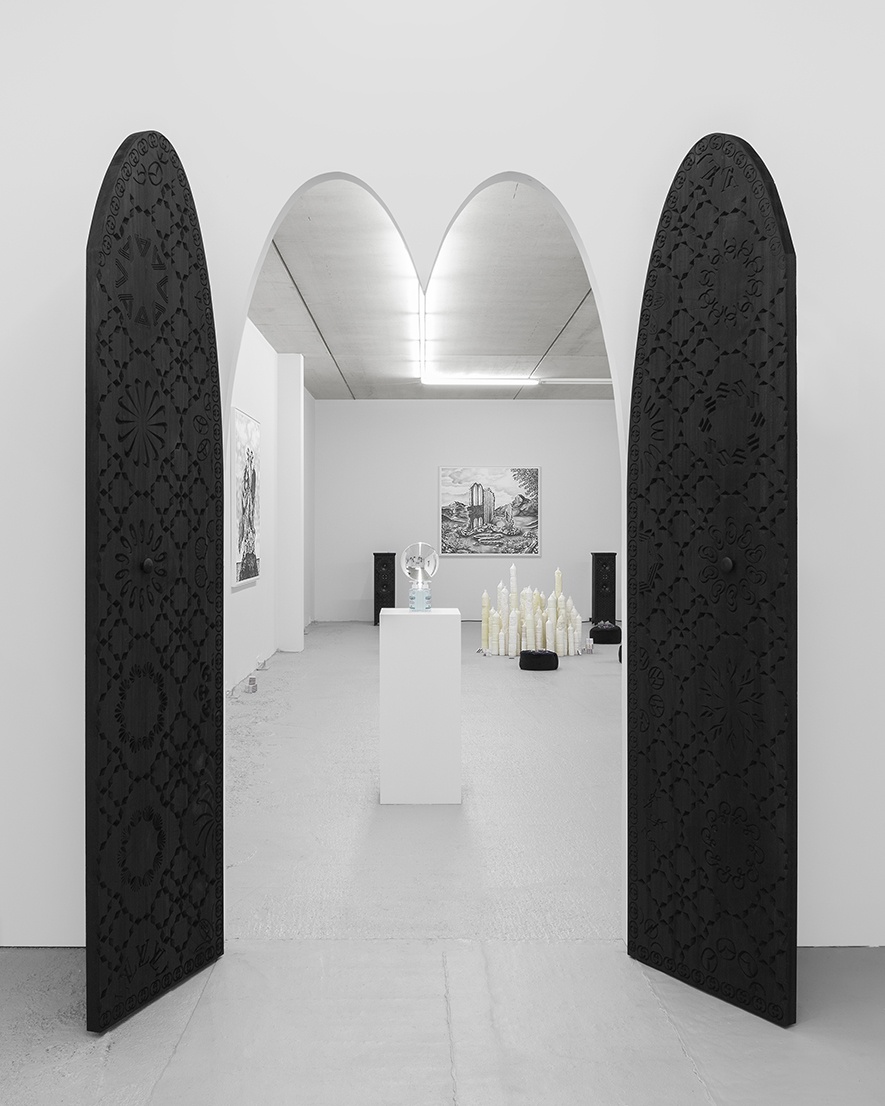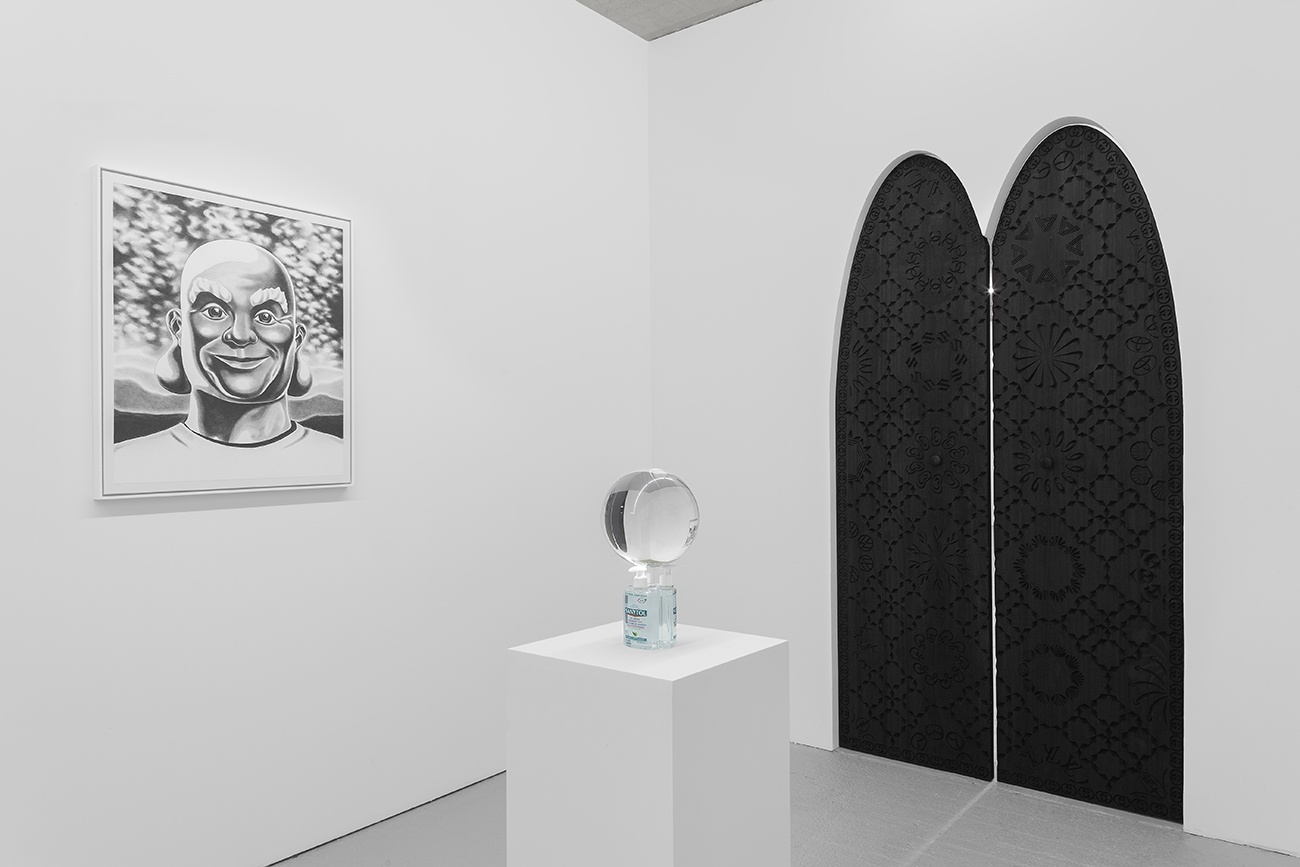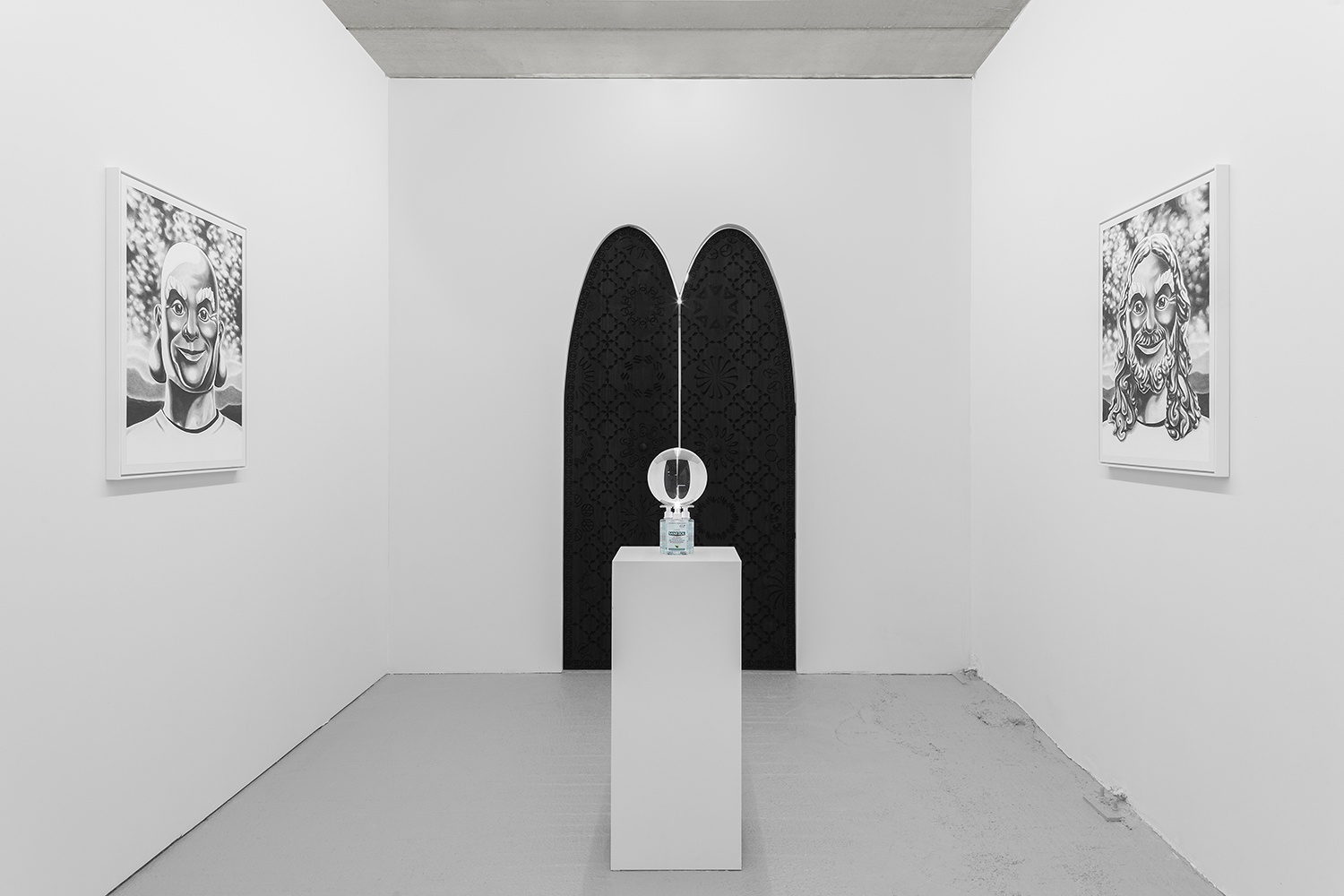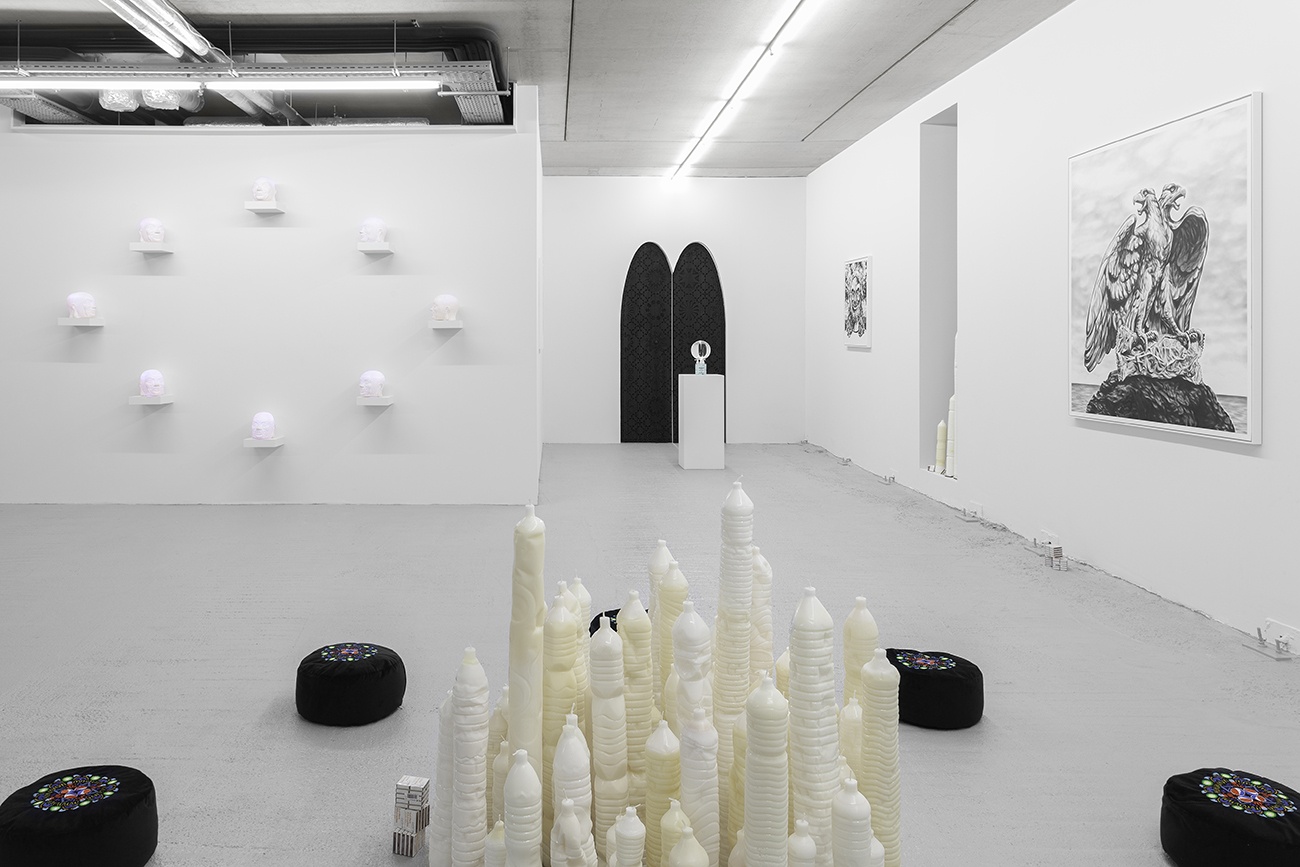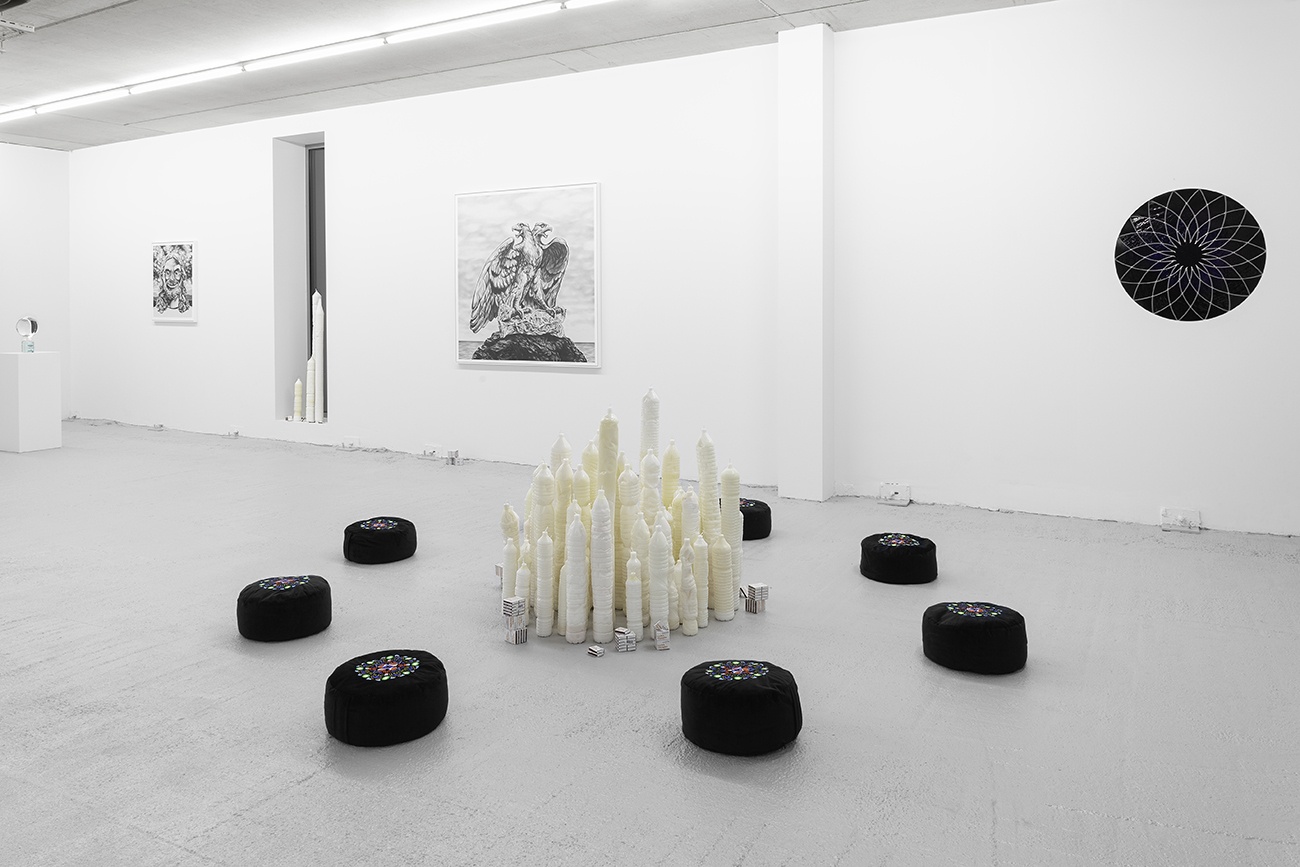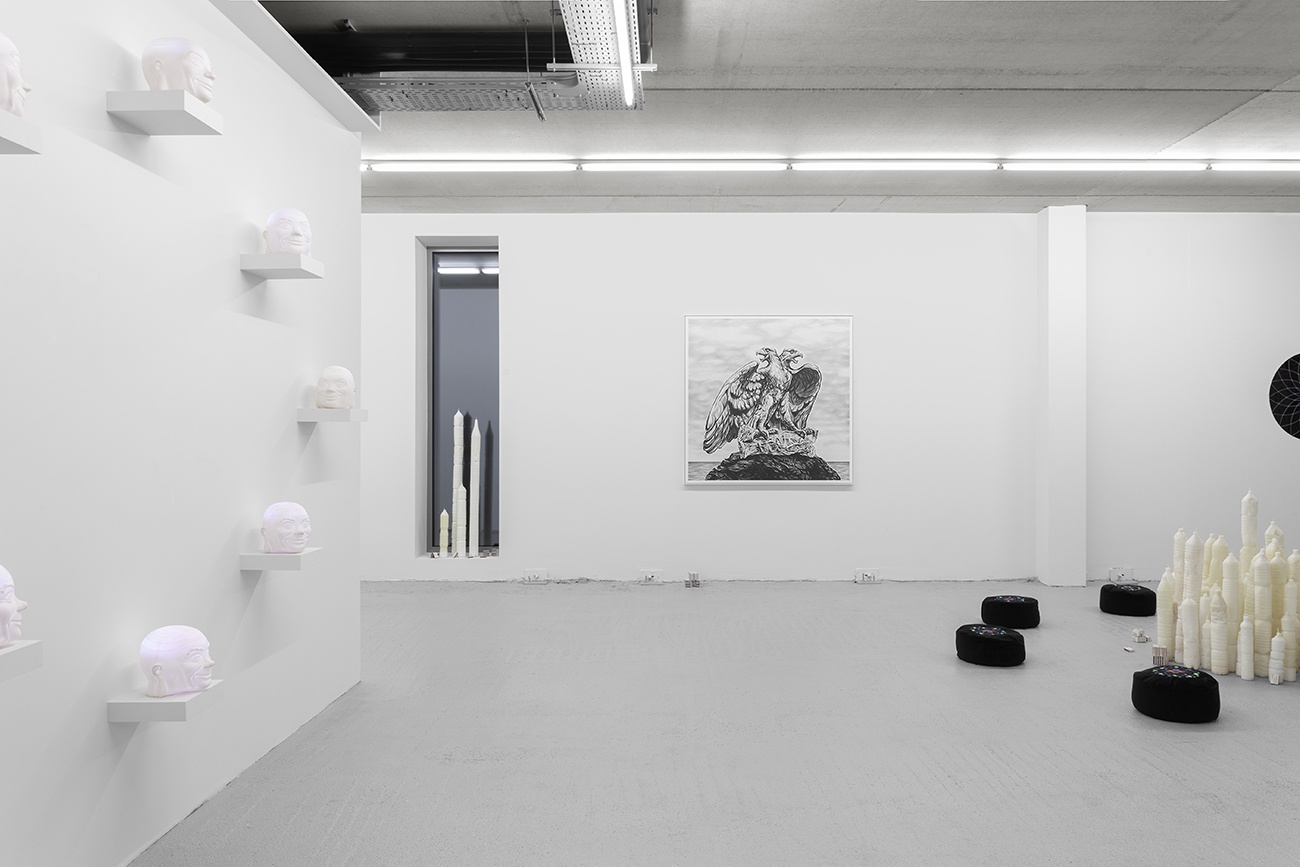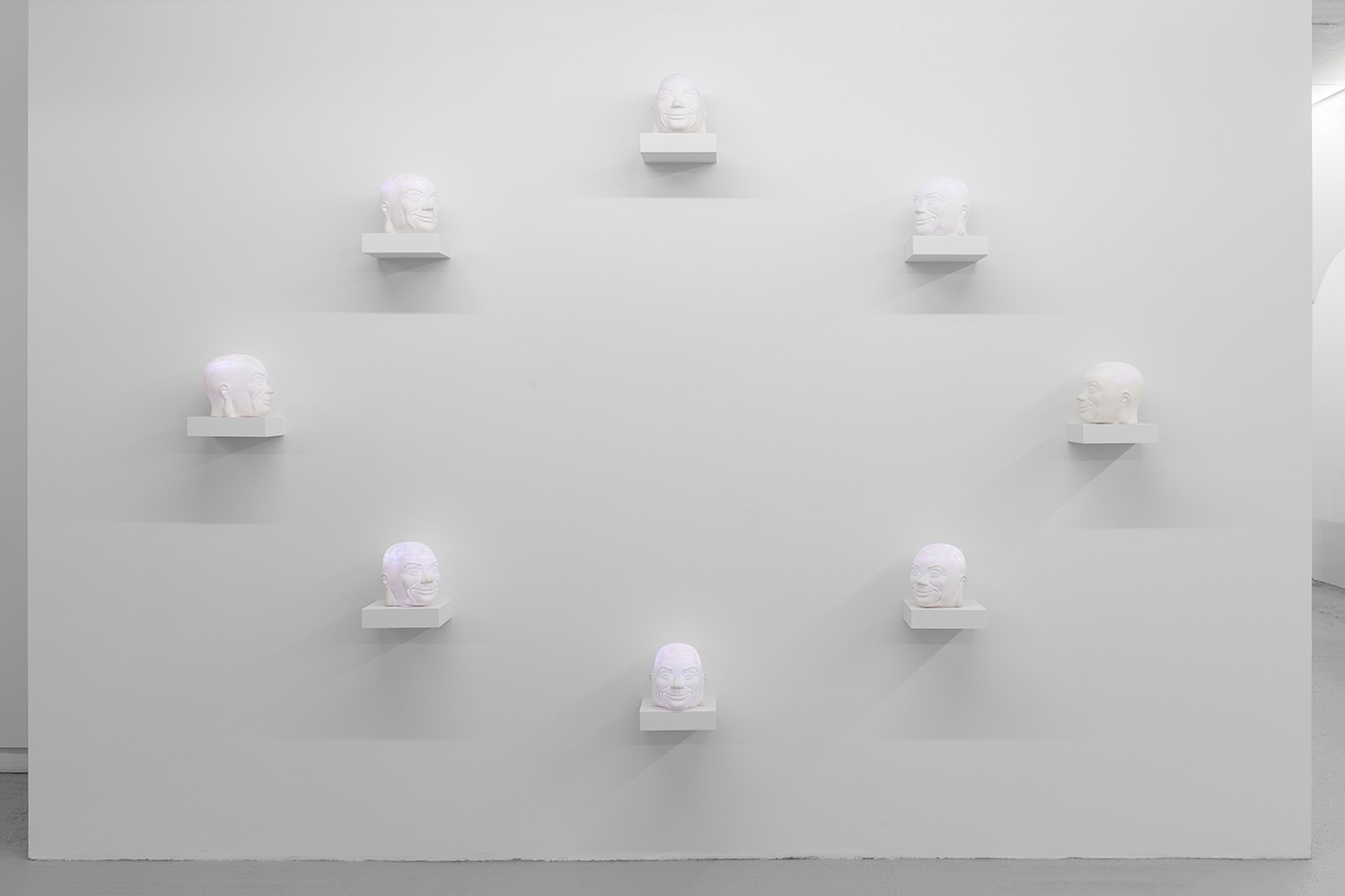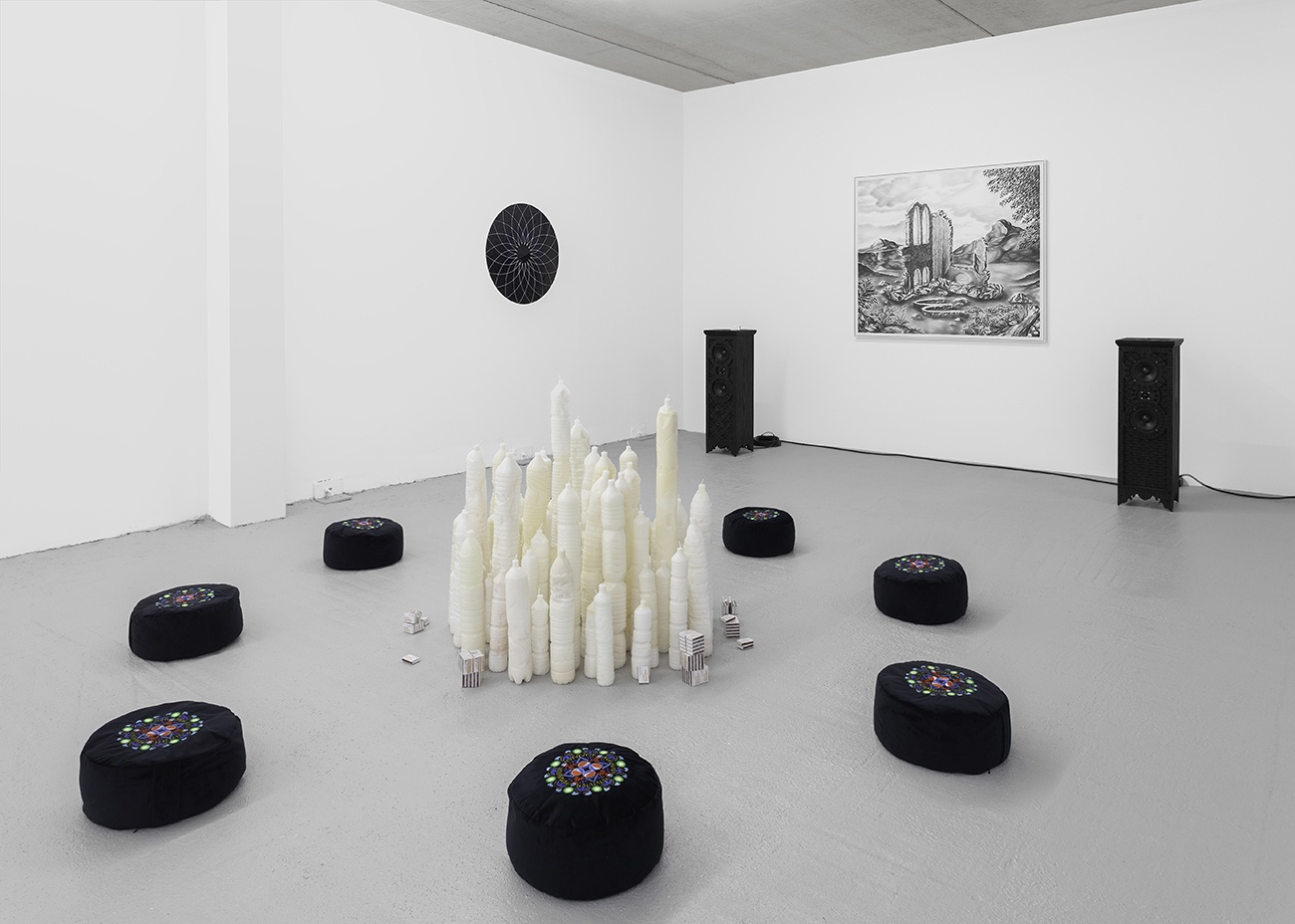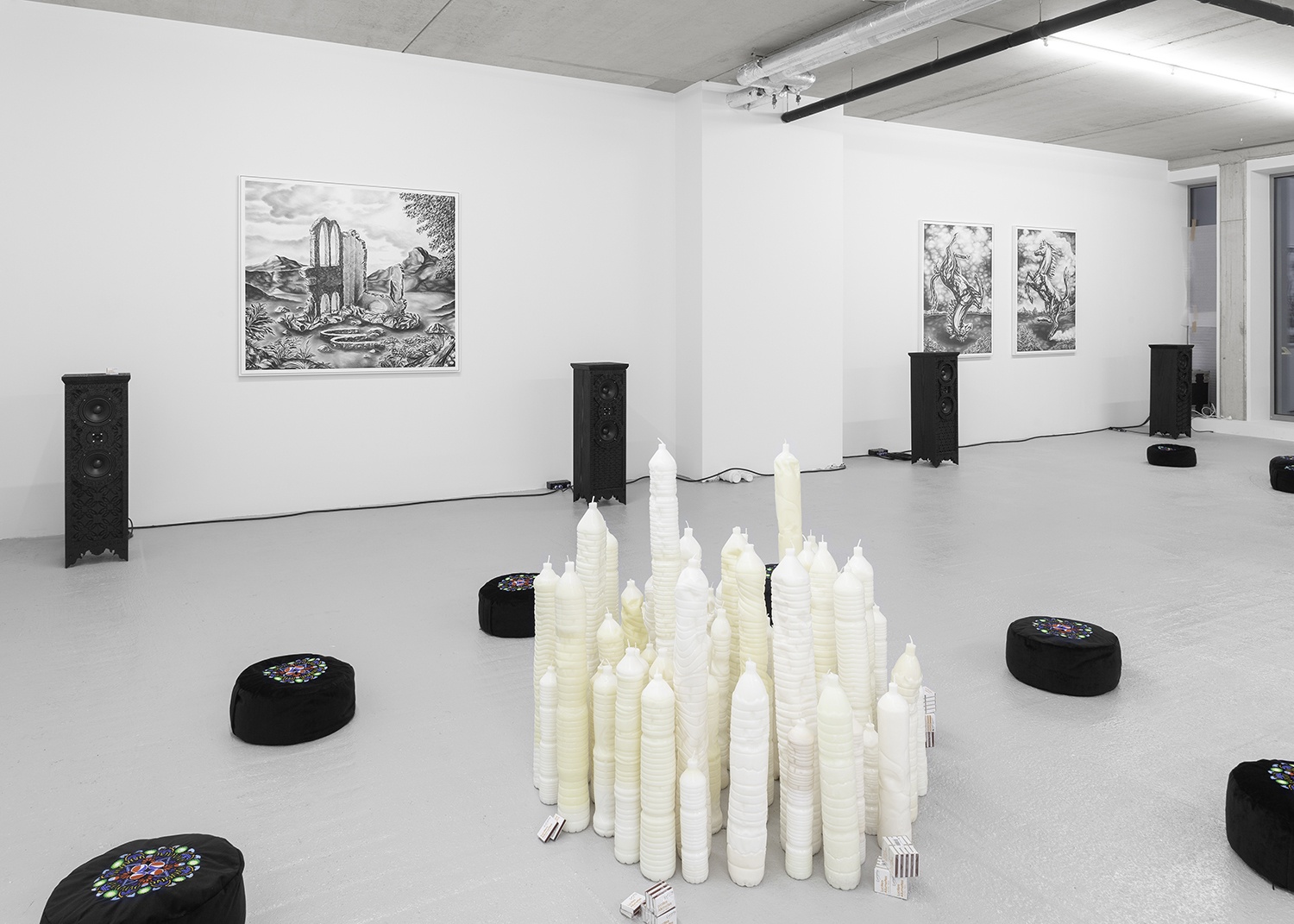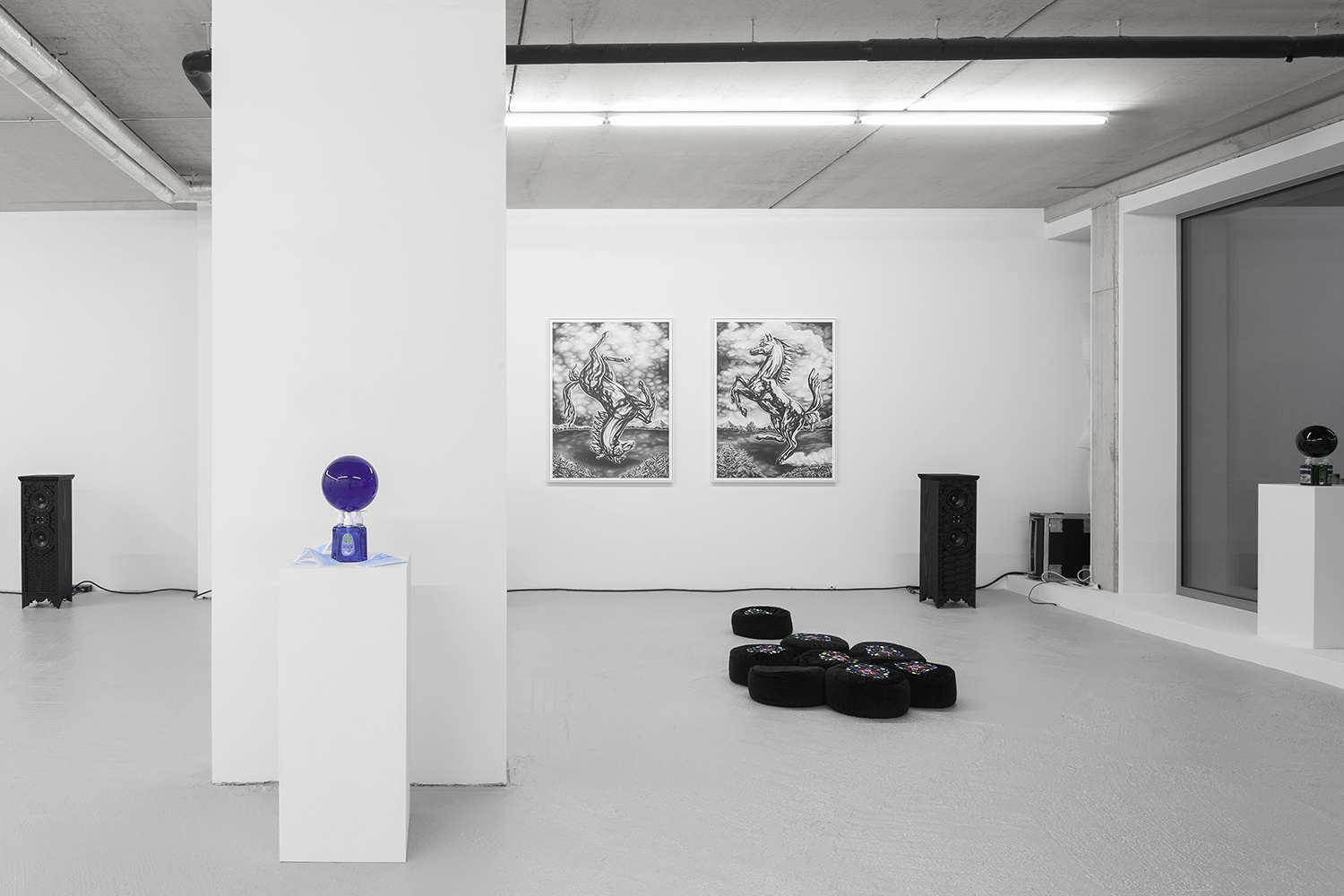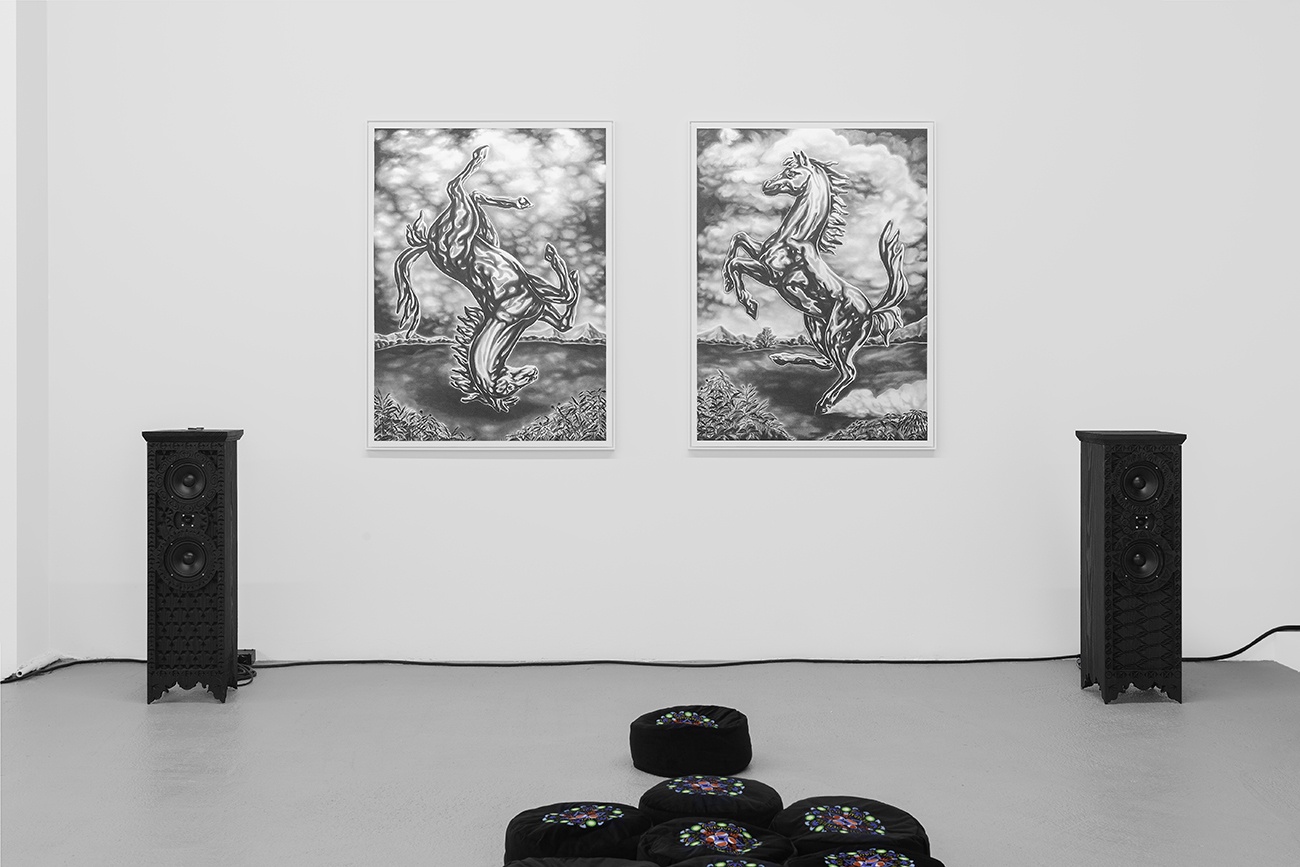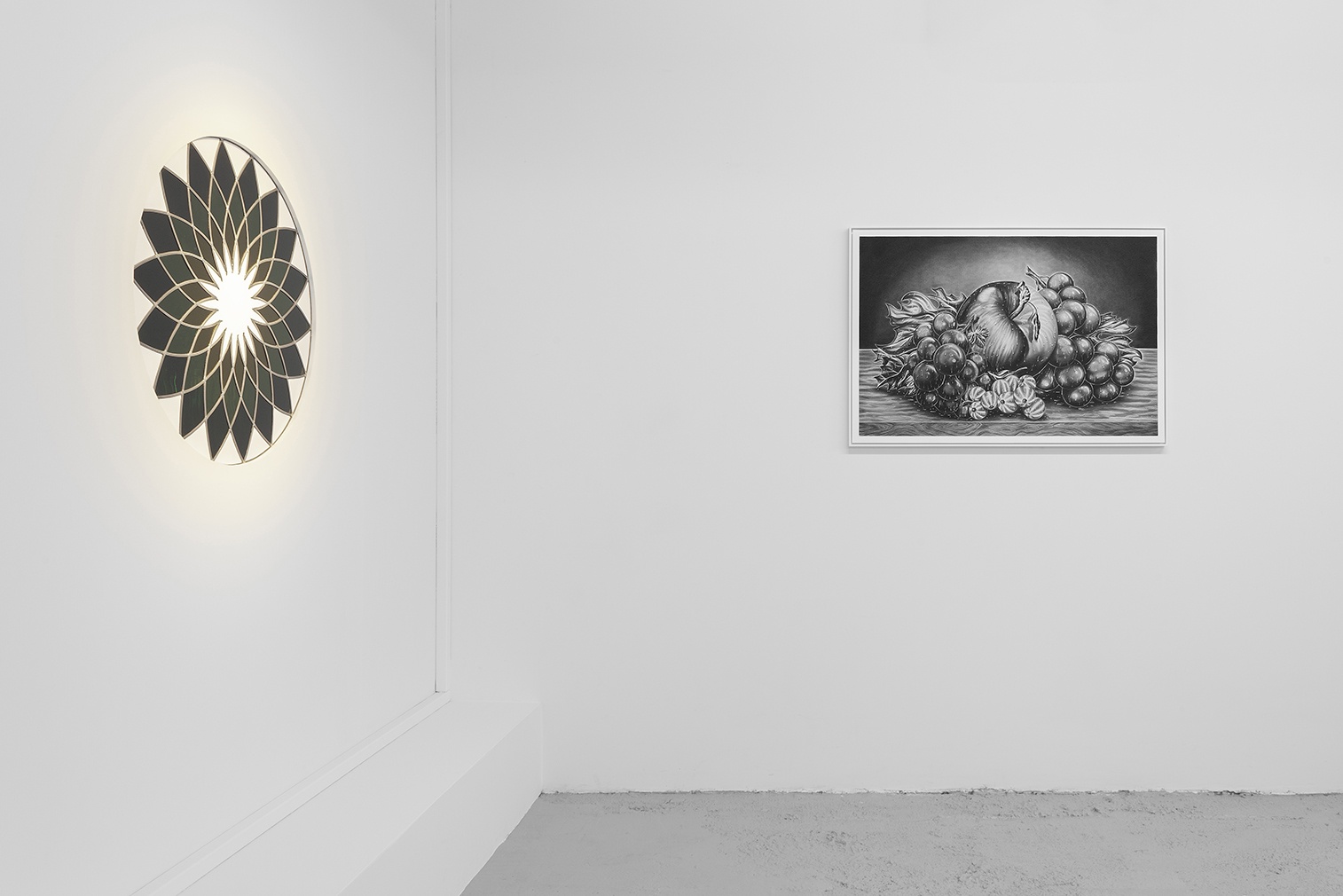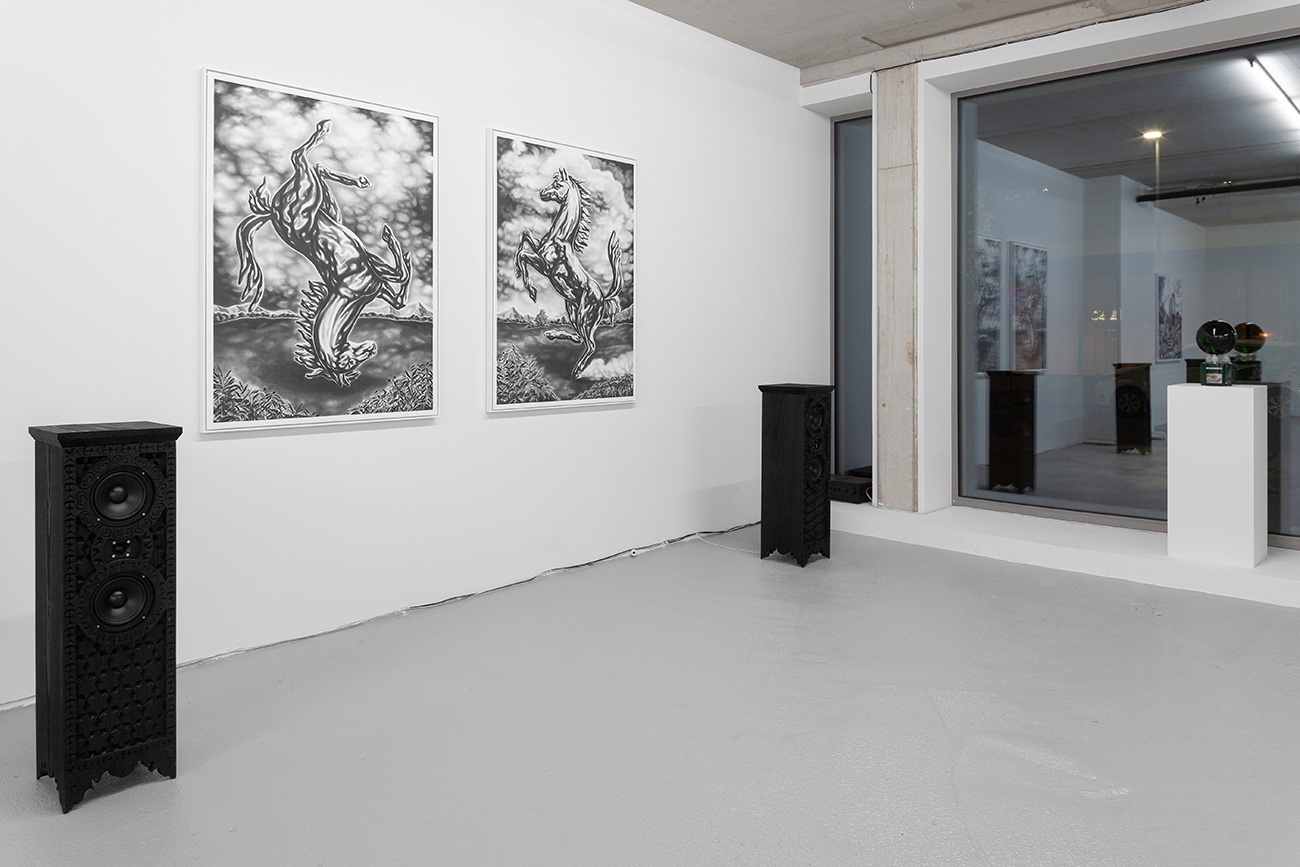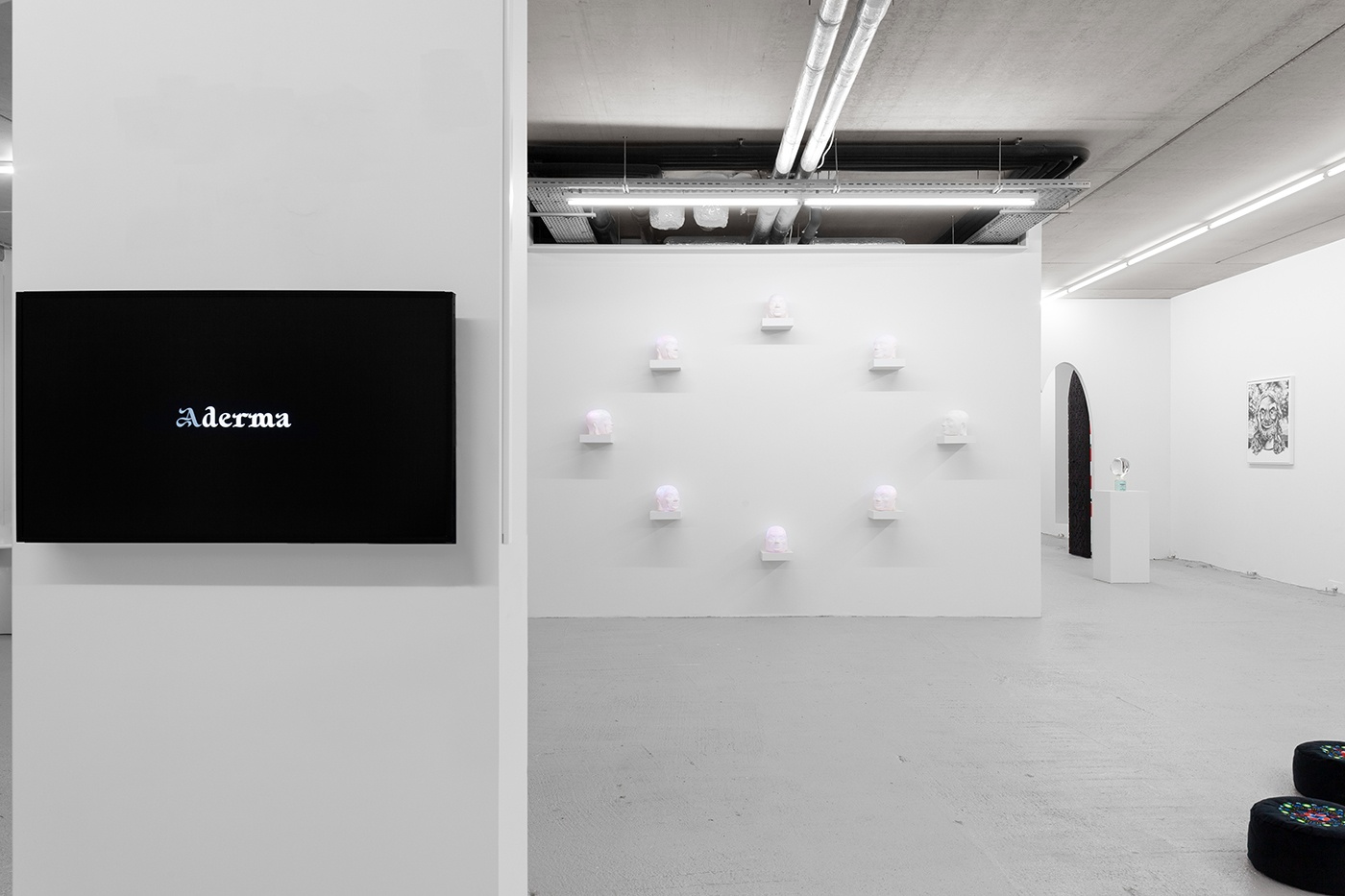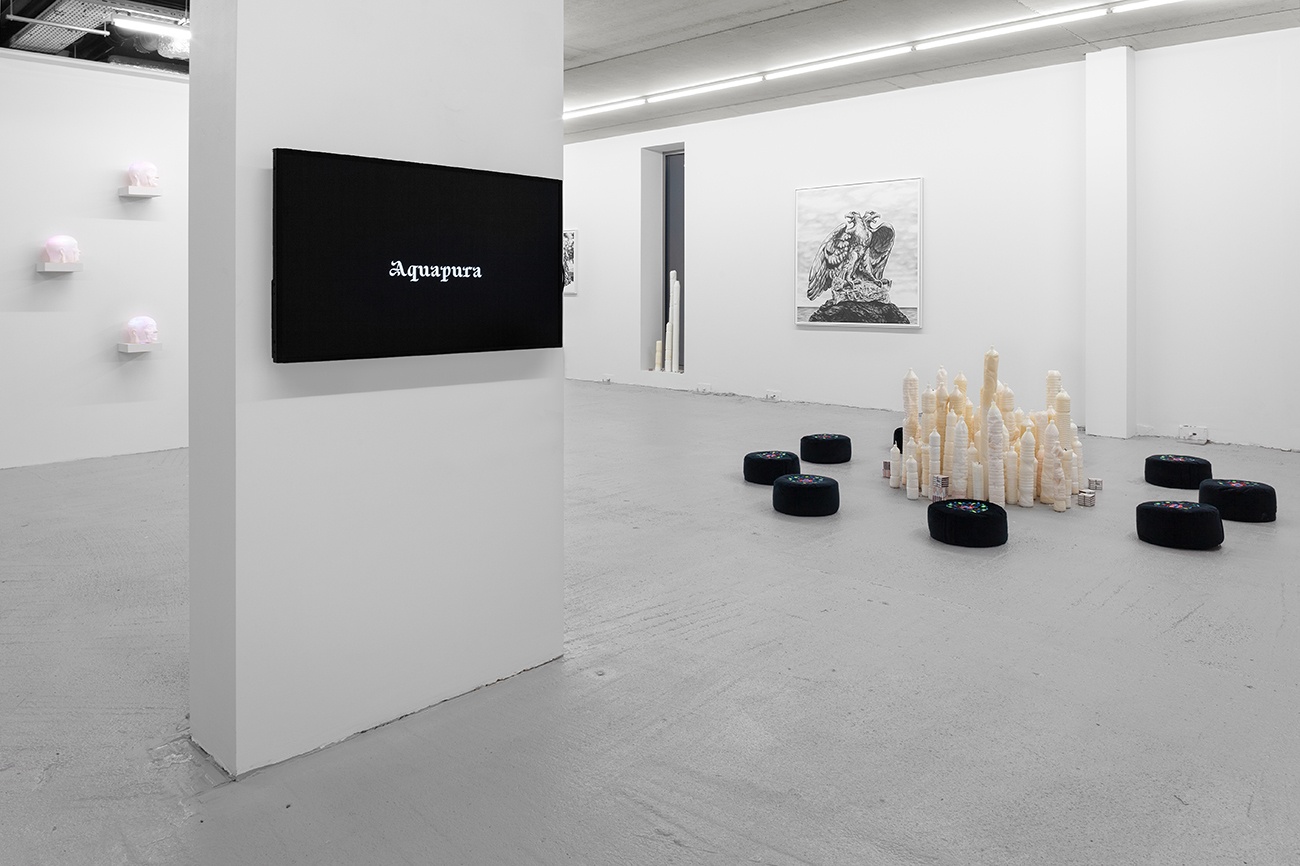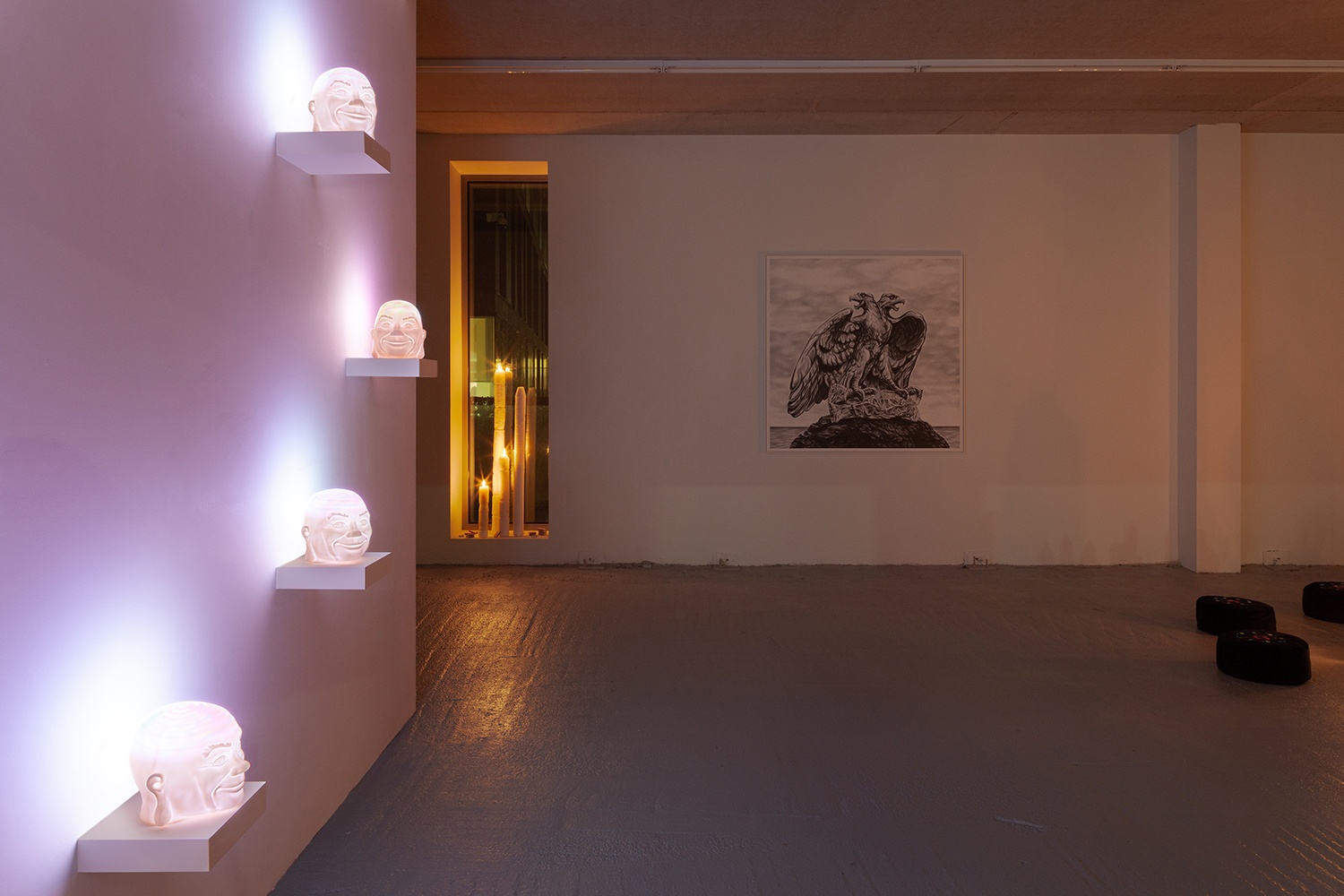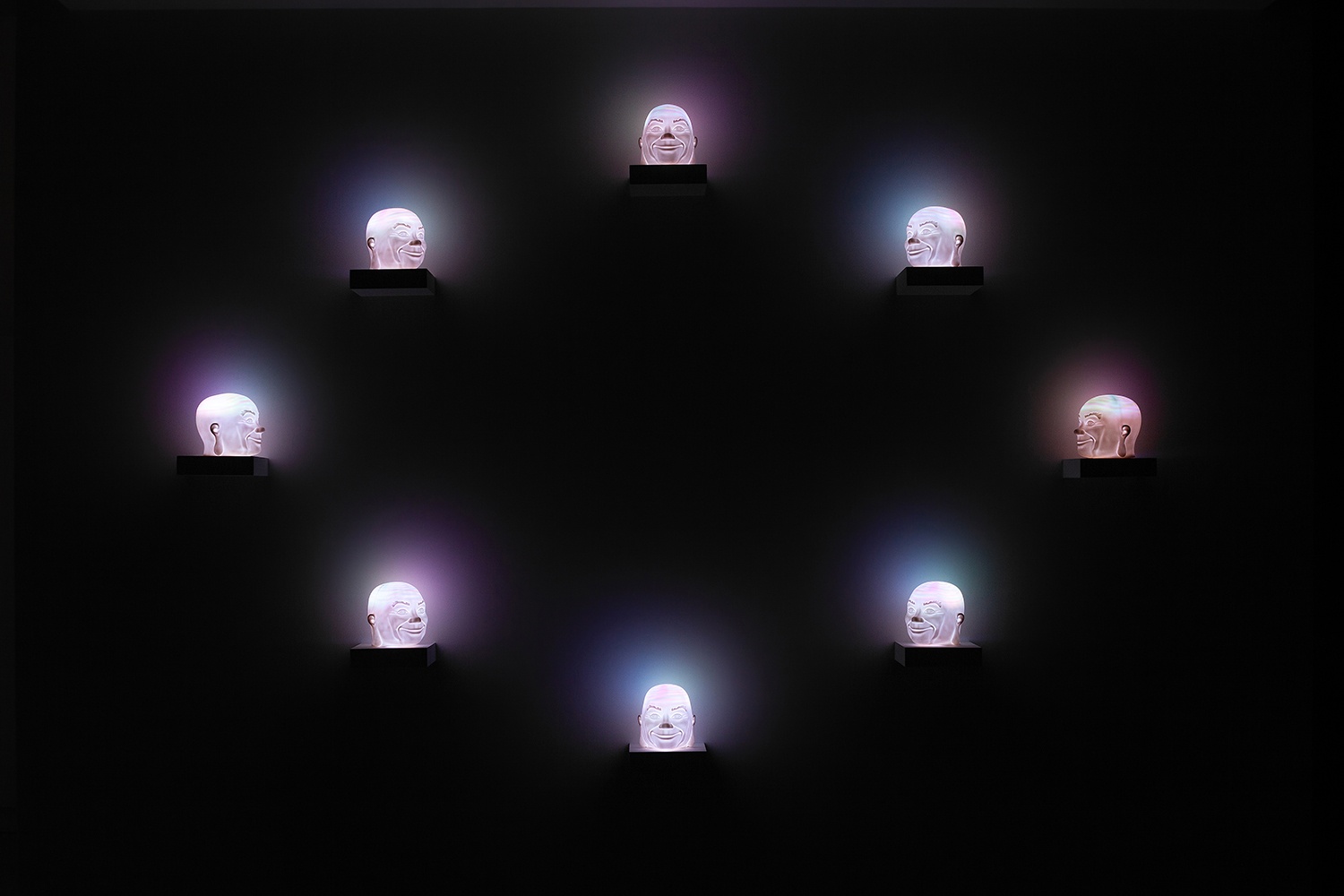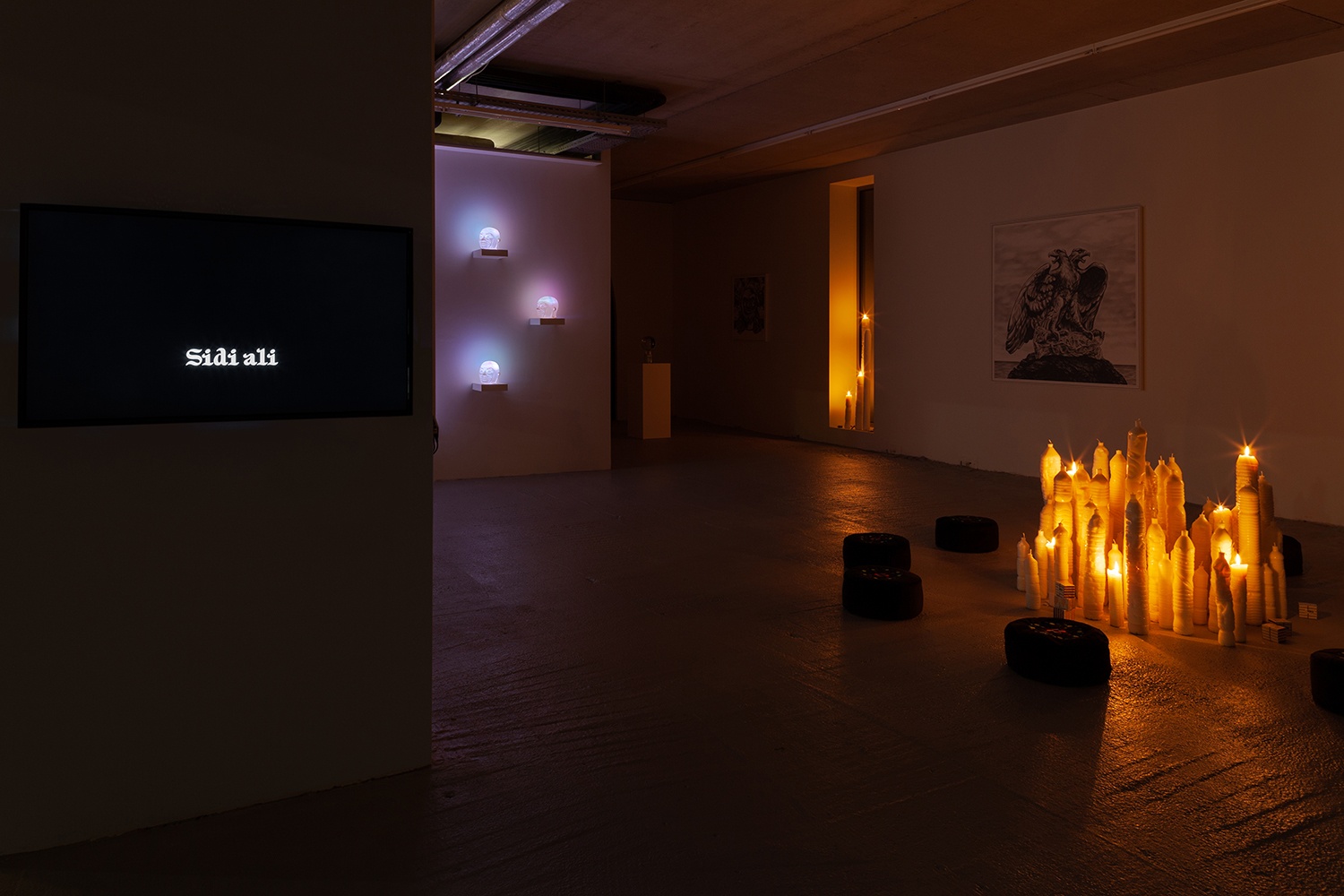Egregorien
In Leo Luccioni’s solo exhibition Égrégorien at Everyday Gallery, the brand names and logos are inscribed as swirling details. In the voiceover of chants, and every piece in the room, Luccioni engraved (hidden) logos; some more visible than others, but as it goes with iconic symbols: once you see them, you cannot unsee them. The exhibition title ‘Égrégorien’, is a neologism composed of French égrégore (egregore, “spirit of a group”) and rien (nothing). The tension of Leo Luccioni’s ambiguous relation to the topic of brands and sacrality, creates a playful yet palpable energy in the exhibition. He seems at once loving, and critical to the things that bind us to each other and to the world itself. Without hierarchy, he thinks in interconnections: objects, images, processes, people, histories and discourses, generate twists, turns and tensions.2 Massively, en troupe, we as individuals identify with brands. The brands and their merchandise tell us stories that we co-author, as they reflect us back to ourselves. But in reality, they all fulfill the main definition of a cult: they attract people who see themselves as different from the masses in some fundamental way. Contrary to stereotypes, most cult members aren’t emotionally unstable—they’re just normal folks searching for a sense of belonging.3 Ancient storytelling now makes place for brand meaning; it may sound far-fetched, but the promises the packages keep, the stories they reflect, how they become light embodies of our beliefs. Companies have at their disposal a whole range of resources to convey these stories: by means of colour, typeface, visual metaphor, symbol, texture and materials.4 Similarly, Luccioni collaborated with craftsmen and companies, artists, composer Line Luccioni, vocalists Babel Canto and typographer Laurent Muller, on this installation. The result is immersive, and equally light as oddly layered: a subversive mash of religion and brands. In short-lived puffs of cleanliness, mobility and consorts, brands and their products offer us a sense of longevity and renewal at once. Buying can serve us as a key identification mechanism: we can re-assure or reinvent ourselves. Visual identities have a seeming, borrowed permanence in our life. Whilst striving for cleanliness, youth, beauty, wealth, pleasure and speed; the desire for immortality, actually produces something quite it’s opposite: a whole lot of waste. As Luccioni notes “what will survive humanity, is not necessarily human”. Text by Céline Mathieu
